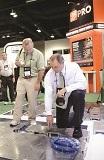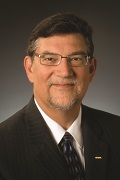

As I’ve traveled the world talking to FM professionals, I’ve discovered a tremendous level of diversity in the development of the FM industry in different areas. In places in which FM concepts are relatively new, the greatest challenge is demonstrating the value of FM to a skeptical audience. In other places, FM markets are more mature and pushing the cutting edge of innovation and progress. Sometimes, these differences span continents. Other times they manifest between organizations that are across the street from one another working in the same field with radically different FM strategies.
In the face of this variety, and perhaps counterintuitively, the FM professionals I talk to still have more in common than you might think. Although they approach problems with different resources and priorities, the problems they face are similar as are the solutions. An innovation in Asia can be used in Africa. A new process in Australia can revolutionize the market in North America.
It turns out that diversity within the FM industry is one of its greatest strengths. Such diversity nurtures a laboratory of ideas and provides a proving ground of solutions. Of course, this isn’t unique to the facility management industry. Globalism has made everything in the world interconnected and complex.
In Europe, Asia, North America and throughout the rest of the world, facility management professionals are finally beginning to speak the same language. They’re learning a vocational vocabulary that transcends boundaries and empowers FM professionals from every background to find proven solutions to shared problems.
Currently, IFMA is working closely with other FM organizations from around the world and the International Organization for Standardization (ISO) to codify this language into something that can be used by FM practitioners, policy makers and related industries around the world. The ISO process is not easy. It requires a significant investment of time and energy from everyone involved, but the benefits promise to be long lasting.

But delivering the content is only part of the solution. We must also find a way to expand the pool from which we draw ideas. A robust marketplace of ideas is necessary if the best ideas are going to rise to the top. That requires international standards that let anyone from anywhere in the world fully participate.
For decades, IFMA and its members have been building these standards. And in that time, the FM industry has grown and is evolving rapidly. The natural question is how these advances in the industry benefit individual practitioners and their organizations.
Each of IFMA’s 24,000 members faces a unique set of challenges. There are a nearly infinite number of facility types, organizational cultures and regulatory environments, each with its own specific needs. There are no one-size-fits all solutions to every problem. Instead, the global IFMA community provides an equally diverse range of possible options.
Some FM practitioners find answers through personal relationships with peers at the local chapter level, while others benefit more from the more targeted industry-specific nature of IFMA councils. Some look for solutions at industry events, while others turn to world-class credentialing programs. The specific paths taken vary, but almost without fail the diversity of needs from within the global community are satisfied by the diversity of solutions that global community can provide.
In February, IFMA completed the data-gathering portion of its perennial Global Job Task Analysis (GJTA). This comprehensive global survey identifies the knowledge, skills and abilities that comprise the facility management discipline around the world.
The previous GJTA established 11 key competency areas shared by facility management professionals worldwide: communication, emergency preparedness and business continuity, environmental stewardship and sustainability, finance and business, human factors, leadership and strategy, operations and maintenance, project management, quality, real estate and property management, and technology.

The training materials — manuals, classes, webinars, etc. — that support these credentials are built around the competency areas derived from the global community. They are the basis of a shared global vocational language. Those who hold the FMP, for example, speak the same language no matter where they are in the world.
Consider the example of Melissa Hopkins, assistant vice chancellor and assistant dean of facilities operations at the top-five ranked Washington University School of Medicine in Saint Louis, Missouri, USA.
Tasked with overseeing a staff of more than 300 people spread between 45 buildings with a variety of reporting structures and ownership combinations, Hopkins was confronted with the fact that the facility personnel within her own organization were trapped in organizational silos, each speaking their own unique vocational dialects.
Hopkins wanted her staff to better appreciate and understand what their peers were doing. She wanted them to learn how to support each other within the organization. To achieve this, she implemented an organization-wide credentialing effort to harness the power of the global community.
To date, the Washington School of Medicine has produced more than 90 FMPs and more than 40 SFPs. The results are remarkable. The increased efficiency has allowed her to combine five call centers into one and led to a cost savings of US $2.1M in FY15. And more savings — US $15M worth — are predicted over next five years.

Melissa’s story is just one powerful example of how individual FMs are able to harness the power of the global FM community to solve their problems. I hear similar stories all the time. Sometimes it’s about building the best team of contractors and vendors by spending a day on the exposition floor at a conference. Maybe it’s the social support of chapter events where FM professionals can bounce ideas off each other in a less formal setting.
Regardless of how it happens, FM professionals are busy forging a global community of practice and finding ingenious ways to harness that power. Their success — our success — will be the key to the future of this industry.

